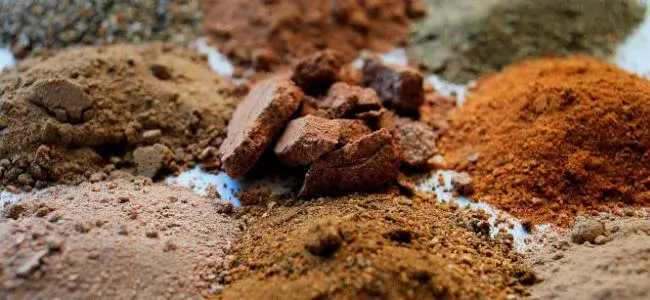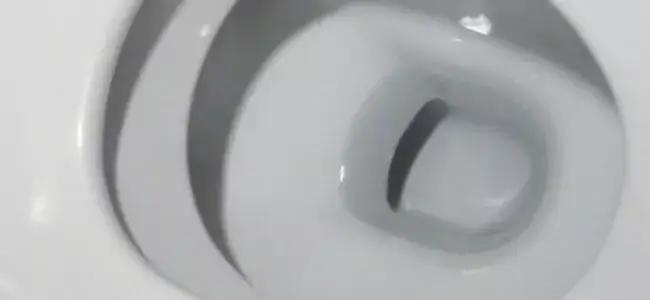Strange facts about septic systems

TABLE OF CONTENTS
If you are a septic system owner, you might have heard all manner of myths. For instance, there is a common myth that throwing a dead cat in the septic tank can help rejuvenate bacteria and thereby make the septic tank more effective. But is this even true? In this article, we will not only answer that but also look at some strange facts about septic systems that you need to know.
A septic tank can explode
Septic tank explosions are extremely rare so it might sound farfetched but yes, a septic tank can actually explode. Methane gas is usually produced as a by-product during anaerobic digestion of organic waste in the septic tank. This gas is highly flammable. For the most part, methane causes no problems in septic systems because it is a requirement to properly vent the septic tank. venting allows methane and other toxic gases to escape the septic tank safely instead of building up to dangerous levels. If the gas is allowed to build up and then the manhole is opened when there is some form of heat (flames, cigarettes, sparks, etc.), the methane gas could ignite resulting in an explosion. For instance, a Toilet in Florida reportedly exploded after the septic tank was struck by lightning.
Apart from properly venting the tank, there are some precautions that you can take to avoid such accidents. If your tank has a single compartment, make sure there is space of approximately one or two inches above the baffles. For a tank that has two compartments, ensure proper venting in both compartments. Failure to vent the tank properly encourages methane to build up.
Entering an empty septic tank can result in death
Did you know entering the septic tank can be fatal – even if the tank is empty? Septic tanks not only hold the wastewater from the house and bacteria but lots of toxic gases too. Some of these gases include Methane, Ammonia, Nitrogen Dioxide, Sulphur dioxide, and Carbon Dioxide. The concentrations of these gases differ with the sewage composition, the time, the pH components, the temperature, and other variables. Even in small concentrations, these gases are toxic and could make you suffer from shortness of breath, irritation of eyes, and incessant coughs. Exposure to gases in high concertation could be fatal. MedCrave publishing reported an interesting case study where a 24-year-old jumped into a septic tank to save a baby that fell in. After saving the baby, he got trapped in the septic tank but was rescued by neighbors after 15-20 minutes. By this time, he was unconscious and was rushed to the hospital where he remained comatose before he finally succumbed on the 5th day.
The size of the septic tank is not determined by the square footage of your house
Contrary to common belief, the size of the septic tank is not determined by the square footage of the house. When determining the size of the septic system to install on a property, the most important determining factor is the number of bedrooms the house has. The number of bedrooms is a more accurate parameter for determining the maximum occupancy of a house and it will help the septic system designer to know the best size of the tank for the house. For instance, in Alberta, the assumption is each bedroom in a duplex will have an occupancy of 2 people. The maximum occupancy is used in the determination of peak daily flow rate and that is used in the determination of the size of the septic tank. The following are the recommended septic sizes as per the number of bedrooms in a house.
| Number of bedrooms | Minimum number of tanks (in gallons) |
| 1-2 | 750 |
| 3 | 1,000 |
| 4 | 1,250 |
| 5 | 1,250 |
| 6 | 1,400 |
Septic systems will not last forever
Septic tanks do not last forever. A well designed, installed and maintained septic tank will last for at least 30 years. With proper care and maintenance, the septic tank can last even longer than this. This is one of the reasons why septic system owners have to be careful not to use products that are harmful to the septic system. However, all septic tanks will eventually need to be replaced. This is an important piece of information to have when buying a house. Knowing the age of the septic tank will give you a rough idea of how long you can use the septic tank before you have to replace it.
You can earn a rebate by maintaining your septic tank regularly
If you live in Canada, the government can offer you rebates if you take steps at making your septic system more efficient. For instance, you can earn rebates if you replace your older toilets with newer ones that use less water. Making such adjustments on your property may sound expensive but they can eventually save you a lot of money. Apart from the rebates from the government, you will save on your utility bills and the septic tank will not fill up as fast.
A septic tank can still be pumped in winter
The septic tank can be pumped all year round irrespective of the temperature. So, if your septic tank is due for pumping in the middle of winter, don’t hold it off. The only time it might not be possible to continue with the pumping is when there is heavy snowfall or if there is a heavy blizzard moving through your neighborhood. But once the snow stops, the pumping can be done. However, you should know where the septic tank is located on your property and it should be accessible to the truck that will be used in pumping.
Biological additives can prolong the life of the septic system
Even though septic tanks have an average lifespan of 30 years, this period can either be longer or shorter depending on usage and maintenance. The septic tank relies on bacteria to digest organic waste and keep the bacteria healthy is one way of ensuring the longevity of the system. This is why it is advisable to use biological additives. Some of the additives (chemical additives) are harmful to the system because of their toxicity. The toxic substances can alter the pH in the septic tank and this can either inhibit the bacteria or even kill them. However, biological additives are made from enzymes and bacteria and are therefore a better option. They do not pose any risk to the microorganisms and this is why they are a better choice for septic systems.
Pumping the septic tank every 2 years will not solve all problems
There is a common misconception that pumping your tank frequently will solve all septic tank problems. but there is nothing further from the truth. Even though pumping the septic tank is a must, this shouldn’t be the only maintenance you perform. The first step in ensuring a healthy septic system is observing the products you use in the house. The idea is to avoid sending any toxic substances down your drain or toilet. Shock treatment can also help in restoring a septic system back to optimal working conditions.
Bacteria from a dead animal or a pound of ground beef won’t help your system
Even though it is true that bacteria will be needed to decompose the dead animal, the bacteria are not the same strain as the one that is needed in the septic tank. Adding the dead animal will therefore not help the septic system. Furthermore, it makes the work of pumping the septic system harder because the carcass or skeleton could get sucked up into the vacuum line. The best way to help replenish the useful bacteria in your septic tank is by using a biological additive.
Conclusion
There are lots of misconceptions about septic systems and it is important to get your facts right. Do not take everything you hear in the grapevine as gospel truth. Always check with a professional before you make any decisions based on some “new information” The thing to remember is, your septic system will only continue to work properly if you take proper care of it. If you have any doubts, call us on 1-800-378-6132 and we will be happy to clarify anything for you.
OUR LATEST BLOG POSTS

Strange facts about septic systems
If you are a septic system owner, you might have heard all manner of myths. For instance, there is a common myth that throwing a dead cat in the septic tank can help rejuvenate bacteria and thereby make the septic tank more effective. But is this even true? In this article, we will not only answer that […]

Soils types and their impact on septic systems
SOILS TYPES AND THEIR IMPACT ON SEPTIC SYSTEMS However good your septic system is, it depends on the right soil type to complete the process of purifying the wastewater from your home. The soil type in the drainfield area will determine how well the effluent is filtered and if the water that is sent back to the […]

Avoid flushing these if you have a septic tank
Most homeowners wrongfully assume that their toilet can serve as some sort of garbage disposal. As a result, they end up flushing all manner of things in the toilets. Some of the things that are flushed down the toilet are actually innocent mistakes because homeowners think that is the right way to dispose of the products while in other cases, it is just a don’t care attitude. Whichever the case may be, flushing some of these things can result in septic system failure and it could cost you a fortune. We have rounded up some of the commonly-flushed products that you should never flush if you have a septic system.
PERFECT! I WOULD NEED...
Discover which products are the best for your needs!You can contact us at 1-800-378-6132 (toll free) or click on the following button to access our free online evaluation.
GET A QUOTE ONLINELog in to your account
Whoops! It happens sometimes...
CREATE A NEW ACCOUNT
CONGRATS!
You are now registered and ready to go. You can add and change any of your information on your client profile.
Unfortunately, we do not ship our products to the USA at the moment.
But, if you live in the United States and would like to order them, please fill in the form below. You will then be notified as soon as they are available in your country.
Thank you for your understanding!
Malheureusement, nous n’expédions pas nos produits en France pour le moment.
Mais, si vous êtes résident français et aimeriez les commander, remplissez s’il vous plaît le formulaire ci-dessous. Nous pourrons ainsi vous aviser aussitôt qu’ils seront disponibles dans votre pays.
Merci de votre compréhension!

-
30 products to avoid
-
What to replace them with
-
And everything you should know about your septic system
DOWNLOAD THIS FREE EBOOK!
Which email address should we send it to?


